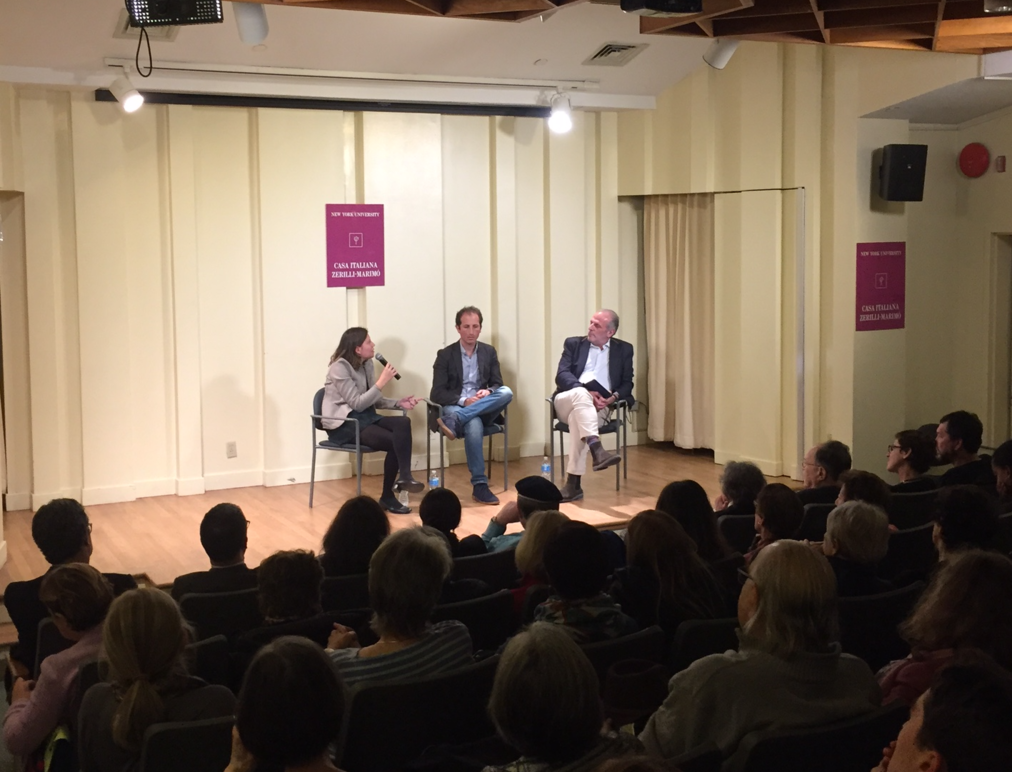Pecore in erba: A Satirical Work by Alberto Caviglia
Casa Italiana has recently organized a brand new series called “Primi al Cinema” which aims to bring Italian films to the States as well as other cinematographic novelties from and about Italy. This week, Pecore in erba, a highly satirical piece was screened for the first time in New York City and was followed by a Q&A with the mockumentary’s director, Alberto Caviglia, as well as its screenwriter, Benedetta Grasso. For those who don’t know, a mockumentary is a film where completely false events are presented in the style of a documentary and although the genre is becoming quite popular here in America, Pecore in erba is the first of its kind in Italy.
Sheep in Grass
The film traces the life of Leonardo Zuliani, a man who happens to be born as an anti-Semite. As he grows up in the Roman neighborhood of Trastevere, Leonardo almost becomes some sort of national hero for his antisemitic activism. Caviglia chose to tackle the issue of anti-Semitism with satire in order “to bring to light and make fun of this hypocrisy while hopefully prompting reflections on the subtle nuances of antisemitism can have and on our way of dealing with it.” He risked conducting this controversial experiment not just to bring awareness to antisemitism but with the hopes that it leads to understanding the absurdity of many common attitudes, the hypocrisy that causes prejudices and the distorted way in which reality can be presented by the media in general.
A Satirical Gem
Pecore in erba presents a society that is the opposite of ours where antisemitism is not viewed as something negative but more like a personal skill. Since Leonardo was born an anti-Semite, people believe that he should have the right to express his nature and everyone who doesn’t allow him to do so is considered to be an oppressor. Caviglia admits that he was scared to use a satirical point of view but that it allowed him to “face and fight all of these taboos while talking much more deeply about the things I wanted to say but couldn’t using normal language.”
Making the protagonist out to be bad guy would’ve been the easiest thing to do but Caviglia actually portrays him as an endearing character which was the real challenge. “I think this is the main provocation of the movie because presenting an anti-Semite as a positive hero is something which brings the audience to hope that he succeeds in what he does and this is what creates this strange feeling.”
The pair ends the discussion by commenting that although the film is about a fake society, it is only a fake society up to a point. “In some moments you realize that it’s just an exaggeration of something that already exists and I hope that this movie can be seen as a tool of reflection about how society is evolving and the direction in which it’s going,” Caviglia concludes.








































i-Italy
Facebook
Google+
This work may not be reproduced, in whole or in part, without prior written permission.
Questo lavoro non può essere riprodotto, in tutto o in parte, senza permesso scritto.